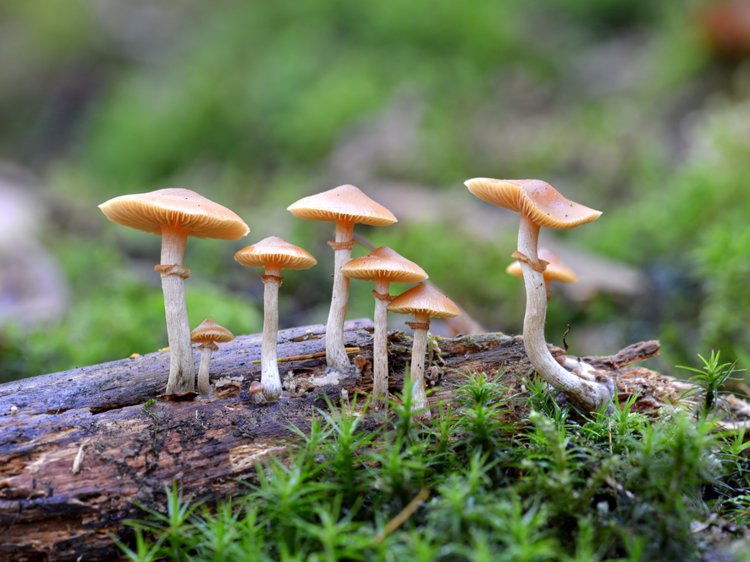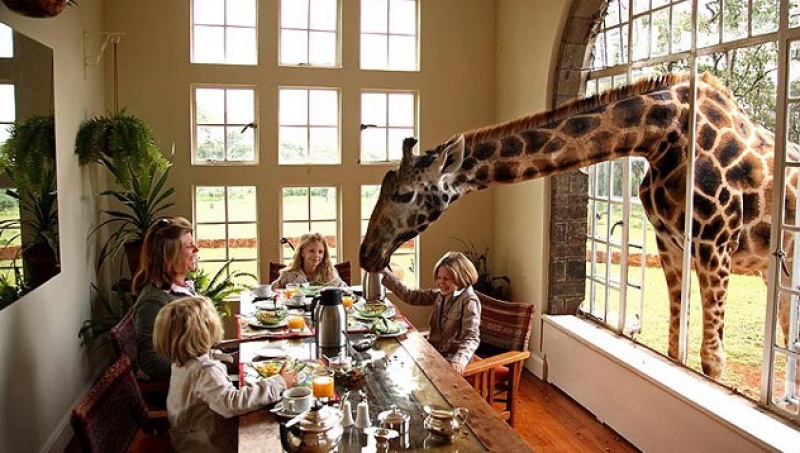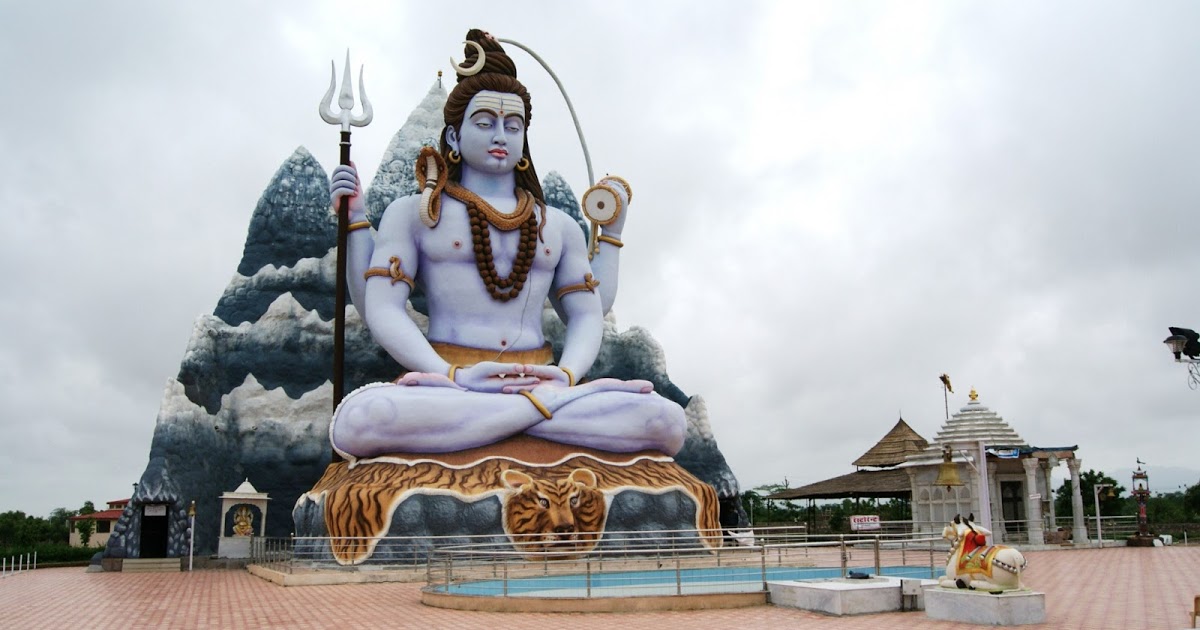
Makar Sankranti: How Indian States Celebrates this Auspicious Occasion
India is a nation that gets involved in all occasions to celebrate, and it does so with great pride and enthusiasm. One such event, Makar Sankranti, is observed yearly on January 14 or 15 and is significant to Indian history, culture, and spirituality. Different Indian states observe this day in different ways, demonstrating the country's diverse cultural heritage.
A harvest celebration known as Makar Sankranti is celebrated when the Sun finally reaches the Capricorn or Makara stage, indicating the end of winter. This day has been designated especially for worshiping the Sun God.
Let's examine the various ways Makar Sankranti is observed in India.
Orissa:
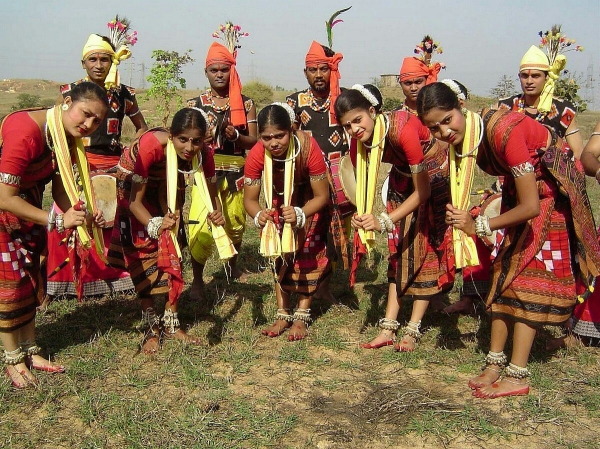
In Orissa, people observe Sankranti by taking a holy dip in reservoirs or lakes before starting their day by preparing Makara Chaula, which includes raw freshly produced rice, banana, coconut, jaggery, sesame, rasagola, Khai/Liaa, and chhena puddings for naivedya to Gods and Goddesses. Adivasis make up 40 percent of the overall community in the regions of Mayurbhanj, Sundargarh, and Keonjhar, where they celebrate this festival for a week with singing, dancing, and other forms of expression. Bhubaneshwar's twilight skies are illuminated by kites. As the sun begins its yearly trip northward, it has astronomical significance for believers of the sun god who gather to pray in the massive Konark temple.
Gujarat Celebrates Uttarayan:

Kite flying is the primary component of this Gujarati celebration, also known as "Uttarayan." As large numbers of Gujaratis fly kites from their rooftops and decks, the sky transforms its color. Special treats like Undhiyu, a mouthwatering dish made with fresh winter veggies, and delicious Gujarati delicacies like Chikkis and Jalebees are consumed on this auspicious day. Unique performances are held all around Gujarat, bringing the state's vibrant colors to life. Kites and coloured manjhi mark the beginning of the two-day festival, while Vasi Uttarayan, the second day, sees the food in its prime.
Tamil Nadu Celebrates Pongal:
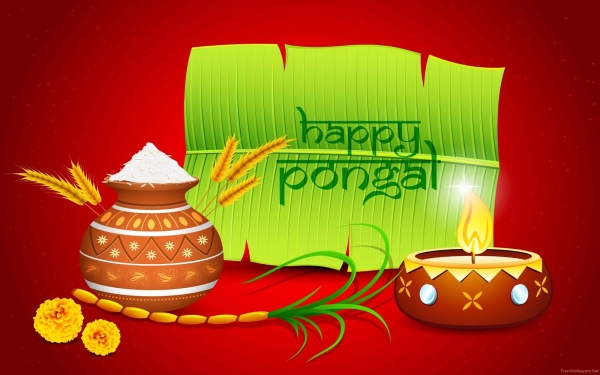
Makar Sankranti, popularly known as "Pongal," is an eventful day with strong cultural and spiritual origins that is observed in Tamil Nadu. Making a variety of delicious savouries and sweets with ingredients like rice, milk, jaggery, sesame, and others, people celebrate this holiday for four days. The primary Pongal ceremony is marked by a special pot of rice being boiled. The celebration lasts for four days, starting on the final day of the Tamil month Maargazhi and concluding on the third day of the Tamil month Thai. Bhogi Pandigai is observed on Day 1, Thai Pongal on Day 2, Maattu Pongal on Day 3, and Kaanum Pongal on Day 4. South India comes to life through the quirky and distinctive Rangoli designs of Tamil Nadu.
Assam Celebrates as Bihu:
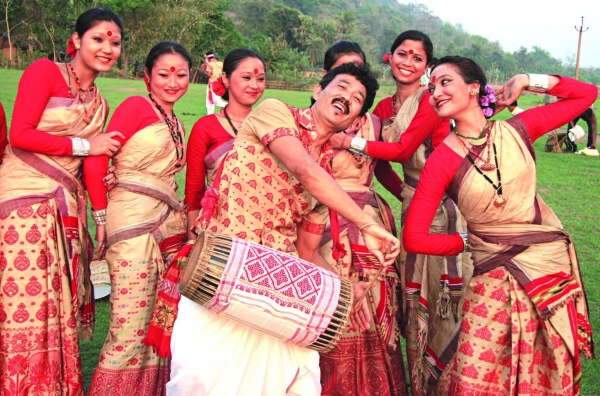
Magh Bihu, also referred as Bhogali Bihu, is a harvest festival celebrated in Assam that signals the end of the harvesting period in the month of Maagha (January–February). In conjunction with the occasion, feasts and campfires are held. The food from the feast is consumed by young people in temporary homes called meji, which they construct out of bamboo, leaves, and thatch then burn the following morning. Buffalo fighting and other traditional Assamese sports like tekeli bhonga (pot-breaking) are also included in the celebrations.
Punjab Celebrates as Lohri:
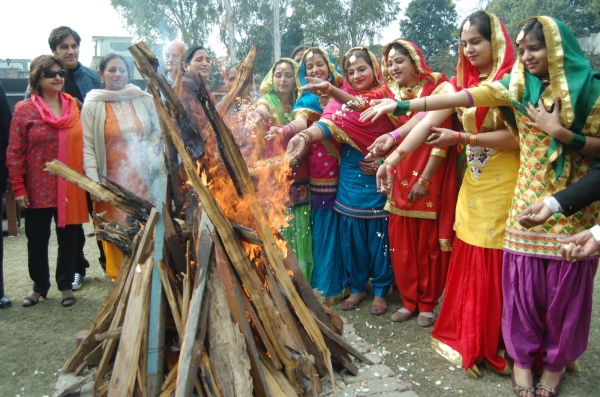
Makar Sankranti is celebrated as "Lohri" in Punjab, where it is observed with a riot of color, dance, music, open flames, and vivacity. Children sing "Dulhabhatti" as they gather their "treasure" from door to door (sweets and savouries such as popcorn, rewri, peanuts, jaggery, gajak, and so on). Men and women gather in circles in the evening to dance the "Bhangra" around a bonfire while dressed in vibrant traditional colors. Flame-filled bonfires may be seen lighting up areas of North India including Haryana, Himachal Pradesh, Jammu, and others. Communities assemble in open spaces for meals, leisure activities, and seasonal celebrations.
Also Read: The Sufi Festival - Jodhpur

